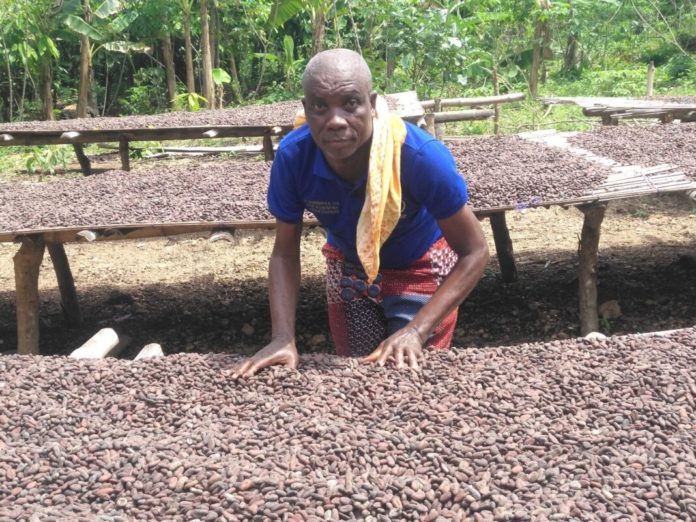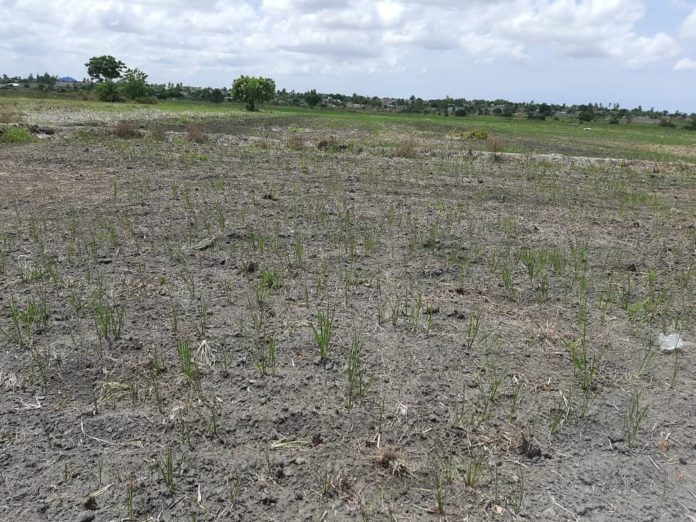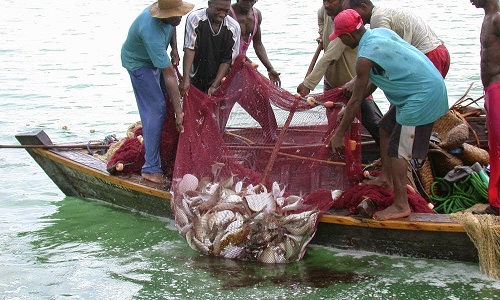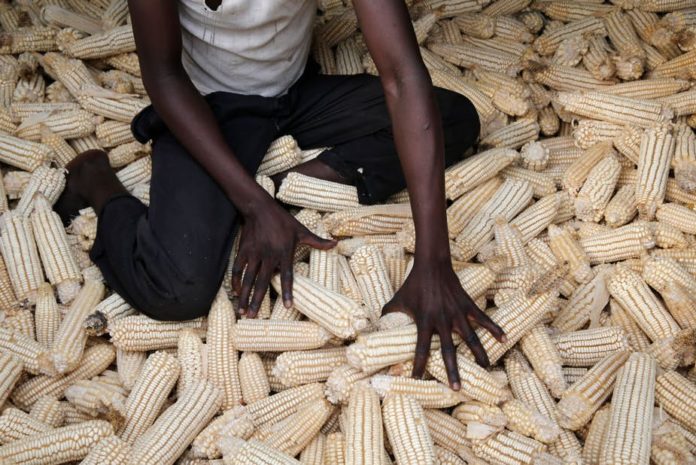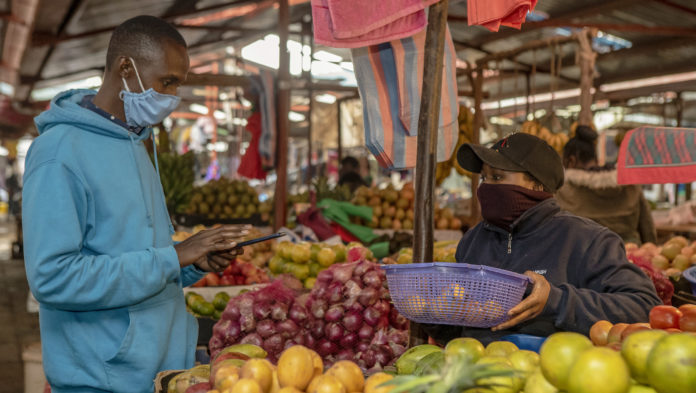The local production of baby food in Africa is an unexploited opportunity, according to a new report by the International Trade Centre, titled Made by Africa: Creating Value through Integration.
Why the African cocoa cartel is a bad idea.
Big commodity buyers do not usually pay their suppliers to produce something that they will never buy. Yet Nestlé, one of the world’s biggest chocolate makers, is paying 10,000 cocoa farmers in Ivory Coast to do exactly that. Among them is Tanoh Kouadio, a 45-year-old cocoa farmer whom Nestlé will pay about 67,000 West African francs ($106) to raise chickens.
I have no hope in 2023 Budget to addressing agriculture challenges – GAWU
The General Agricultural Workers Union (GAWU) is casting doubts over the 2023 Budget turning the fortunes of the sector around.
Prices of foodstuff have shot up significantly this year, with some items going up by more than 50%.
Though the growth rate of the sector has been appreciable, the high food prices, which is partly due to high fuel prices, has been a major concern.
General Secretary of GAWU, Edward Kareweh, told Joy Business the sector may not see considerable funding for next year because of the expected austere budget.
“I’m not too optimistic that the challenges within the agriculture sector will be addressed in the coming budget. I’m saying so because the budget is going to be an austere budget, whether government has concluded the negotiation with the IMF or not.”
“I expect the budget to reflect some conditionalities that the IMF will be expecting the Ghana government to carry on before they reach a deal”.
To this end, Mr. Kareweh does not expect investments in agriculture in 2023.
“I’m not seeing how there will be adequate budgetary allocation to agriculture in the 2023 Budget, increase investments and so on.
Climate shocks to drive millions Ghanaians into poverty – IFC calls for more action.
A report from the World Bank paper estimates that, globally, up to 132 million people will be pushed into extreme poverty by climate change by 2030.
In Ghana, the just released Ghana Country Climate and Development Report estimates that at least one million more Ghanaians could fall into poverty due to climate shocks, if urgent climate actions were not taken.
The report highlighted that incomes could reduce by up to 40 per cent for poor households by 2050 due to climate shocks.
Speaking at the launch of Rules for Green Bonds Rules by the Ghana Stock Exchange (GSE), the Regional Industry Director for Financial Institutions Group, Africa of the International Finance Corporation (IFC), Aliou Maiga, said while these numbers were concerning, it could be halved, if the whole world acted collectively.
He said this would require collective action and financing that prioritises greener and more sustainable development.
He noted that climate financing not only had an important development imperative, but also a significant market opportunity.
He said an IFC study showed that sub-saharan Africa needed US783 billion investment in climate finance by 2030.
Opportunity for growth
He said green finance presented the single largest growth opportunity for investors in emerging markets, noting that financial institutions could grow the share of their green lending portfolio from seven per cent to 30 per cent by 2030, increasing profitability and gaining market share.
“Green banking could enable outperformance by successful banks – not just by better managing environmental risks, but by being at the forefront of new business related to climate lending,” he stated.
He, therefore, commended the GSE for showing leadership in green and sustainability finance through the launch of the green bonds rules.“IFC is committed to working with Ghana’s stakeholders to facilitate investments that reduce greenhouse gas emissions and support climate change adaptation,” he stated.
Well timed
Also at the launch, the Director General of the Securities and Exchange Commission, Rev. Daniel Ogbarmey Tetteh, said investing in green and sustainable future was both well timed and opportune.
He said sustainability was a broader topic that hinged on social, human, economic and environmental pillars, none of which could be ignored.
“It is the most pressing challenge of our time for many business leaders. However, there is evidence of a correlation between the long-term success of a business and sustainability.
“Investors across the world are demanding opportunities to invest in companies or investments with strong Environmental, Social and Governance (ESG) markets,” he stated.
Enormous benefitsFor his part, the outgoing Managing Director of GSE, Ekow Afedzie, said sustainable bonds had gained traction globally due to the enormous benefits they brought to the environment and society at large.
He said the GSE had been very committed to sustainability initiatives over the past years, culminating in its recent admission to the UN Sustainable Exchanges in July.
He noted that the launch of ESG Disclosure Manual Guidelines in November this year was also another testament to its commitment to this sustainability journey.
“The launching of green and sustainable bond rules today is another milestone on our sustainability journey. Listed companies in Ghana now can tap into these fast-growing bond investment products to raise capital that can be used in supporting ESG initiatives,” he noted.
Liquid markets
In a goodwill message, the Senior Financial Markets Specialist at Financial Sector Deepening, Africa (FSD), Victor Nkiiri, said “at FSD Africa, we see the development of capital markets to an end to increase income and job creation, access to basic services and building of sustainable futures”.
He said deep liquid markets were fundamental to economic growth because they helped channel longer-term domestic savings of an economy into the most productive use.
Know This
The Green Bonds Rules will guide the listing and trading of green and sustainable bonds on the local bourse.
Green bonds are bonds that support new or existing projects to generate climate or other environmental benefits that conform to greenguidelines and standards.
The first green bond was issued in 2007 by the European Investment Bank under the label Climate Awareness Bond.
Fisherfolk struggling to pay back loans over premix fuel shortages – Nii Lante Vanderpuye.
The Member of Parliament for the Odododiodioo Constituency, Edwin Nii Lante Vanderpuye, has bemoaned the premix fuel shortages in the country as fisherfolks are not able to pay back their loans for their investments.
Fishermen threaten to embark on demo over premix fuel shortage.
Agitated fisherfolk across the coastal areas of the country have threatened to embark on a massive demonstration, following their inability to access premix fuel to power their outboard motors for some months.
Maize will be added to the PFJ market next week – Agric Ministry.
The press secretary of the Minister of Agriculture, Alhassan Ridwan says the Ministry has considered adding maize to the Planting for Food and Jobs (PFJ) market.
Chocolate market faces turbulence as Ivory Coast and Ghana throw down gauntlet on cocoa price.
The world’s chocolate industry could be in for a turbulent ride as the two biggest cocoa producers set down demands for manufacturers to pay higher prices for their growers.
The quarrel focuses on the Living Income Differential (LID) – a policy that Ivory Coast and Ghana introduced in 2019 to fight poverty among cocoa farmers in the global US$130-billion chocolate market.
Under it, Ivory Coast and Ghana vowed to charge a premium of US$400 per tonne on all cocoa sales, starting with the 2020/21 harvest.
But trade boards in the countries – the Ivorian Coffee-Cocoa Council (CCC) and the Ghana Cocoa Board (Cocobod) – say the scheme is being undermined as cocoa traders depress the price of another premium that operates in parallel.
“We’ve introduced the Living Income Differential as a means of improving the farmer income,” said Fiifi Boafo, Cocobod’s spokesperson.
“You have these companies circumventing these processes to ensure that the Living Income Differential effect is not felt in (their) lives.”
The two countries together account for 60 per cent of the world’s cocoa but their farmers earn less than six per cent of the industry’s global revenue.
They are threatening to punish corporations by barring them from visiting plantations to estimate harvests – a key factor in cocoa price forecasting.
They are also threatening to suspend sustainability programmes that chocolate giants use to enhance their image with fast-growing ethnic consumers.
“This boycott and also ultimatum is to draw attention to the fact that inasmuch as it is important for us to talk about deforestation, it is important to talk about child labour, it is equally important to talk about the farmer income,” said Boafo.
The LID premium is being completed by a price stabilisation fund to help buffer the international price of cocoa in the event of big market fluctuations.
Some experts say the chocolate giants have factored the LID into their costs but claw back some of this by exerting pressure on another premium based on the quality of cocoa beans.
This premium, known as the origin differential, has plunged below zero in recent years, effectively cancelling out part of the LID. Covid-19 is being used as “a pretext not to pay,” CCC President Yves Brahima Kone told Agence France-Presse.
“The thing is, the multinationals have increased their profits – they are able to pay.”
The World Cocoa Foundation, an umbrella group of public entities and corporations aimed at supporting sustainability in the sector, declined to comment on the face-off.
Among corporations, Nestle said it strongly backed efforts for growers to maintain a decent standard of living and had been paying the LID since its inception.
Some experts say that time may weigh against Ivory Coast and Ghana if the row escalates. Virtually all of Ivory Coast’s crop is bought by roughly half a dozen majors.
Of this, around 80 per cent heads to Europe, the wealthy market where sustainability factors – environmental and labour criteria – count most for consumers.
“Ivory Coast’s economy is heavily dependent on cocoa income,” said one specialist. “It needs to sell its beans.”
“Stopping sustainability programmes is difficult to explain to the general public, and Ivory Coast’s image could (also) suffer.”
Nestlé’s partnership is to boost agriculture production for food sustainability to reduce hunger – Patricia Ekaba.
Nestlé is partnering with the Centre for No-Till Agriculture (CNTA) at Nkawie-Toase, in the Ashanti Region, to implement regenerative agricultural practices for maize in Ghana.
Take advantage of the world economic crisis to upscale production and maximize profit – horticulture exporters urged.
Horticulture exporters have been challenged to take advantage of the looming shortage of fruits and vegetables in Europe as a result of the raging Russia-Ukraine war to maximize their gains.


